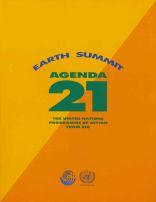Introduction
Integrated Water Resources Management (IWRM): “Promotes the co-ordinated development and management of water, land and related resources, in order to maximise the resultant economic and social welfare in an equitable manner without compromising the sustainability of vital ecosystems” (GWP 2003).
“The IWRM approach helps to manage and develop water resources in a sustainable and balanced way, taking account of social, economic, and environmental interests.” (GWP 2003).
IWRM is designed to coordinate actions across multiple sectors involving a range of stakeholders at local, national and international levels. This integrated approach is diagrammed below.
Integrated River Basin Management (IRBM) is a sub-set of IWRM and involves the implementation of IWRM at the basin level (IWR 2006). The existence of a national framework for IWRM is an important component of effective IRBM.
With support from GIZ, French-GEF, the European Commission and UNDP-GEF, ORASECOM is developing a single, harmonised basin IWRM plan. This collaborative basin-wide plan for the Orange-Senqu River basin is currently in its second phase and is the first of its kind in the SADC region. The development of this plan is in-line with the international harmonisation agenda according to the Paris and Windhoek Declarations and the Accra Agenda for Action (AAA). This is the first such plan in the SADC region, leading the way for other River Basin Organisations.

The Agenda 21 Earth Summit Report.
Source:UN 2011
( click to enlarge )
History
International agreements and principles provide the principles and framework for integrated IWRM. Two key international events in 1992 provided the impetus for formalising the principles of IWRM – the International Conference on Water and the Environment and the UN Conference on the Environment and Development.
The International Conference on Water and the Environment, held in Dublin, Ireland, in 2992, established recommendations for action at the local, national and international levels based on four guiding principles which became known as the Dublin Principles (IRC 2006).
Dublin Principles
The four guiding principles for managing freshwater resources contained within the Dublin Principles are (IRC 2006):
-
Freshwater is a finite and vulnerable resource, essential to sustain life,development and the environment
-
Water development and management should be based on a participatoryapproach, involving users, planners and policy-makers at all level
-
Women play a central part in the provision, management, and safeguarding of water
-
Water has an economic value in all its competing uses, and should be recognised as an economic good
The Dublin Principles were subsequently presented to the World Leaders at the United Nations Conference on Environment and Development (UNCED) in Rio de Janeiro in June 1992.
The UN Conference on the Environment and Development released Agenda 21, which linked development with the environment, promoted the global management offreshwater, and adopted an integrated approach to water management.
Access an official copy of the United Nations Documents version of the Dublin Principles (1992) and Agenda 21.
